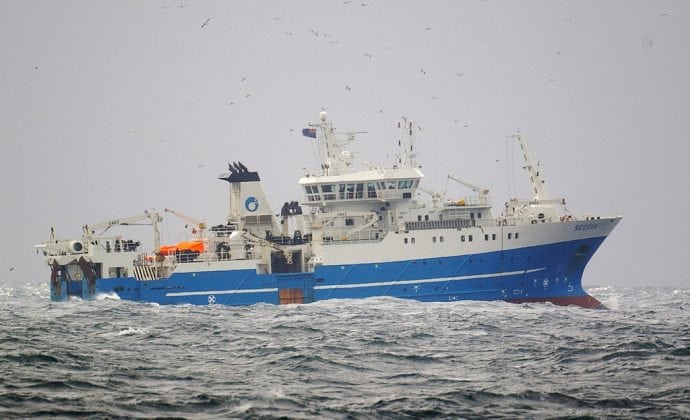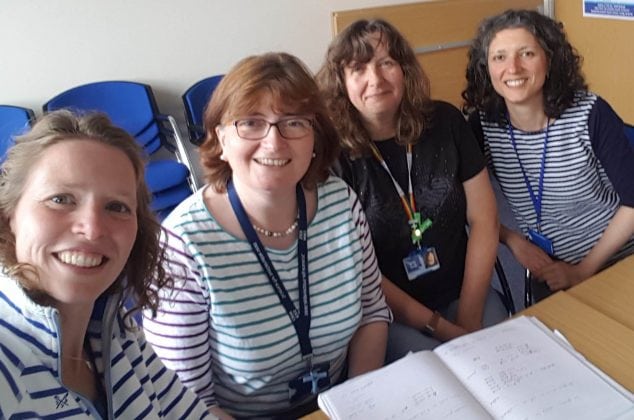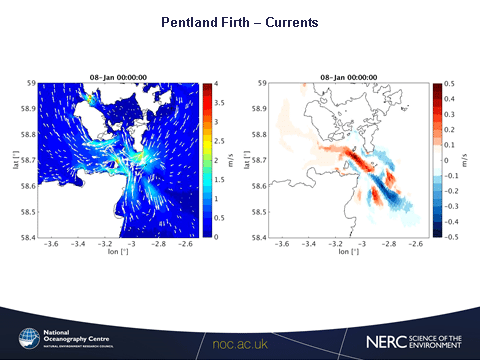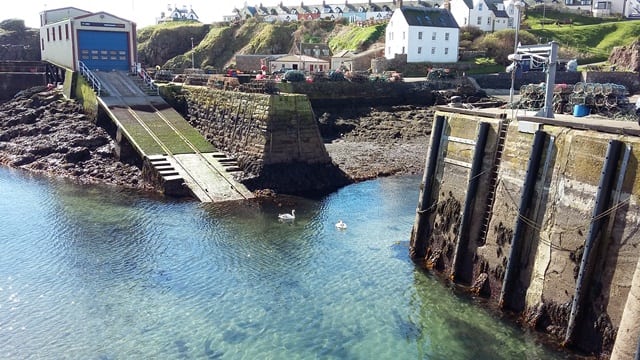Marine
-
Pinging for Lost Moorings
10th December 2018 by Marine Directorate Communications
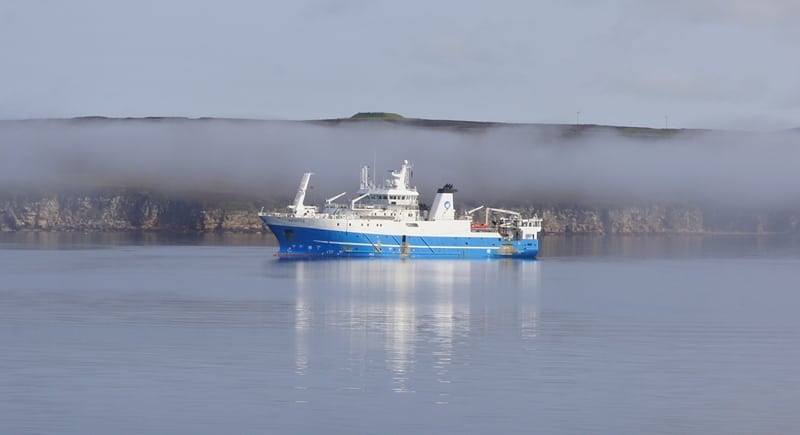
Survey: 1818S MRV Scotia Duration: 8-18 December 2018 Gear: Sea-Bird Conductivity, Temperature, Depth (CTD) Unit/Carousel, Water filtering equipment, Mooring recovery equipment, Chemistry sampling equipment, and AL-200 Trawl-Resistant Bottom Mounts (TRBMs). Objectives: Hydrographic sampling along the Stonehaven AlterEco section in the northern North Sea (Priority 1). Conduct routine hydrographic sampling at stations along the long-term monitoring...
-
With a little help from our friends
4th December 2018 by Marine Scotland Communications

In this, the last blog of the Year of the Engineer, we wanted to show you a poster that speaks for itself, really. We heard from Matt Kinghorn, one of net riggers and poet extraordinaire, earlier in the year. Today, we bring you another one of his creations that showcases and celebrates their work. All...
-
Water Sampling for Long-Term Monitoring – An Update 09/10/18
16th October 2018 by Marine Directorate Communications

Scotia left harbour at 09:00 on Friday 5 October. Our first objective was to deploy the Conductivity, Temperature and Depth (CTD) profiler at 18 stations along a line at 57° N going west from the Scottish East Coast to 2°E. Along with salinity (conductivity) and temperature, we measured dissolved oxygen, turbidity and fluorescence. We also...
-
Water Sampling for Long-Term Monitoring
15th October 2018 by Marine Directorate Communications

Survey: MRV Scotia 1418S Duration: 5-15 October 2018 Procedure: Scotia will make her way to the eastern start of the Nolso – Flugga (NOL) section and start collecting long term monitoring samples and taking CTD profiles. On a previous trip – the 0618S survey – a mooring in an AL500 frame also failed to surface...
-
Storm Frank Makes its Mark in SCObs Monitoring Data
27th July 2018 by Marine Directorate Communications

Aberdeen may be in the midst of a summer heatwave but scientists in Marine Scotland Science (MSS) have seen the footprint of Storm Frank while performing an in-depth quality check of data from the Scottish Coastal Observatory (SCObs) last week. Storm Frank impacted Scotland from 28th – 30th Dec 2015 bringing wide spread flooding and destruction...
-
Recover, Download, Re-deploy, Repeat
4th May 2018 by Marine Directorate Communications

Survey: 0618S – MRV Scotia Duration: 2-12 May 2018 Gear: Sea-Bird CTDs, ADCPs and current meter instrumentation, water filtering equipment, mooring equipment, chemistry sampling and analysis equipment. Objectives: Perform hydrographic sampling along the AlterEco monitoring section in the northern North Sea, which will be sampled on all MSS oceanographic surveys in 2018. Perform hydrographic sampling...
-
Trans-Atlantic Co-operation
8th March 2018 by Marine Directorate Communications
The Woods Hole Oceanographic Institute (WHOI) in Massachusetts contacted Marine Scotland on the 20th February, requesting assistance to retrieve one of their gliders. The glider was deployed near Iceland, but had broken down and had been drifting at the surface since November 2017, and was now approaching the western coast of Scotland …fortuitously near to where...
-
Modelling the future – and the past
10th August 2017 by Marine Scotland Communications

Hydrodynamic models are computer programs that simulate the movement, temperature, salinity and other properties of our seas. These models can complement observations to describe the physical marine environment in the past and the present, and provide forecasts. Marine Scotland has led the development of a model for the Scottish continental shelf waters called the Scottish...
-
SCObs Weekly Sampling to Expand at St Abbs
7th April 2017 by Marine Directorate Communications

The Scottish Coastal Observatory (SCObs) monitors the temperature, salinity, nutrients and plankton community at a number of sites around the Scottish coast. The efforts of Marine Scotland scientists are supported by a network of local citizen-scientists who deploy small temperature sensors and collect water samples for analysis. Many of the SCObs sites have been collecting...
-
How would you like to be a Scientist-in-Charge?
8th March 2017 by Marine Directorate Communications

I work as a physical oceanographer for Marine Scotland Science and every December I am also the Scientist-in-Charge (SiC) of the MRV Scotia’s research cruise. Before taking over the December cruise I work-shadowed a colleague who taught me the ins-and-outs of Scotia and this type of cruise. Funnily enough not many people are keen on...


